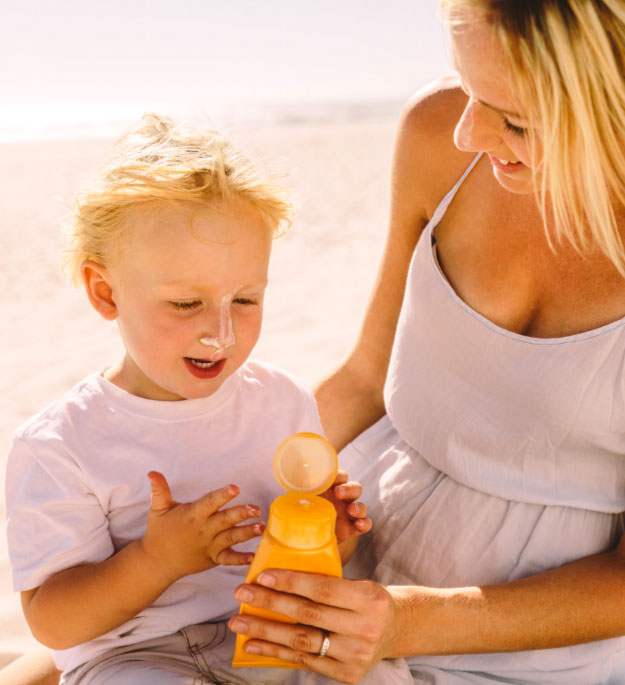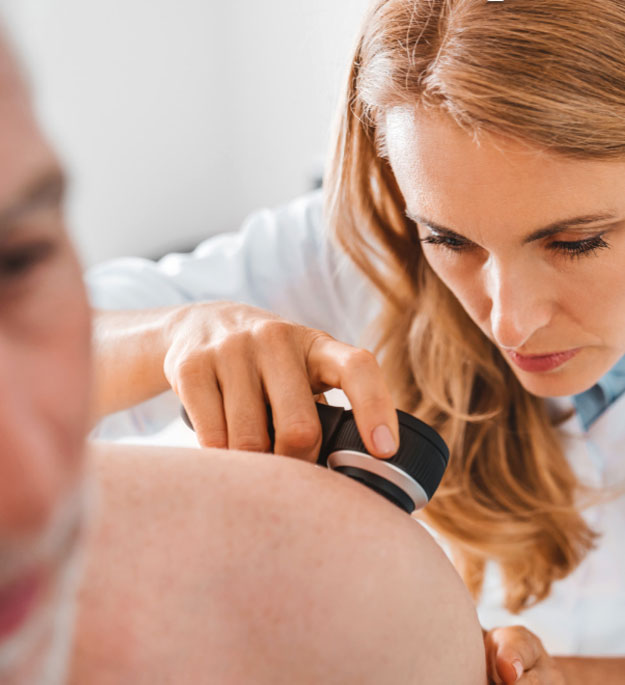Skin Cancer Checks
The Australian sun means we can enjoy an all-year outdoor lifestyle that’s the envy of other parts of the (grey and drizzly!) world.
There’s a downside to all that intense sunshine though. Skin cancers are the most common type of cancer experienced by Australians. Indeed, we have the second highest rate of skin cancer in the world, according to the Australian Institute for Health and Welfare.

Protecting against skin cancer
As with any other disease, prevention is better than cure.
To reduce the risk, The Skin Cancer Foundation recommends that you:
- Seek shade between 10 am and 4 pm
- Protect your skin with clothing, a broad-brimmed hat and UV-blocking sunglasses
- Use broad-spectrum sunscreen whenever you’re outdoors, remembering to reapply it every 2 hours, especially after swimming
- Avoid tanning beds or sunburn
- Examine your own skin from head-to-toe every month
- Get your skin checked by a professional at least once a year.
It’s as simple as calling your GP and booking an appointment.
During your annual skin cancer check, your doctor will check your skin thoroughly using particular techniques to assess moles and tools to look beyond what the naked eye can see.
As well as a physical exam, your skin cancer check includes a discussion of risks and advice on how to protect yourself from the harmful effects of Australia’s intense sunshine.
If you’re concerned about a particular mole, then please see your GP immediately. Don’t wait for your annual skin cancer check.
It’s worth getting a mole checked if it:
- Is new
- Has got bigger
- Has changed its outline
- Is changing colour from brown to black
- Has a rough, scaly or ulcerated surface
- Itches, tingles, bleeds or weeps
- Is raised or lumpy
- Just looks or feels different.
If we think one of your moles looks suspicious, then you’ve done the right thing in coming in for a skin check.
Early identification makes it much easier to treat potential skin cancers before they progress to a more serious stage.
We may take a biopsy (small tissue sample) of any suspicious moles.
If skin cancer is detected, then we would almost always remove it using:
- Surgery with a local anaesthetic
- Cryotherapy (freezing with liquid nitrogen)
- Curettage (scraping)
- Cautery (burning).

WeCare’s GPs perform minor skin cancer procedures in our clinic for your peace of mind and convenience.
If necessary, we can also refer you to a dermatologist (specialist skin doctor) for further investigation and treatment.
Book a skin cancer check
WeCare Medical is a bulk billing practice, so if it’s time for your annual skin cancer check or if you’re worried about a particular mole, please book a skin cancer check at WeCare.

